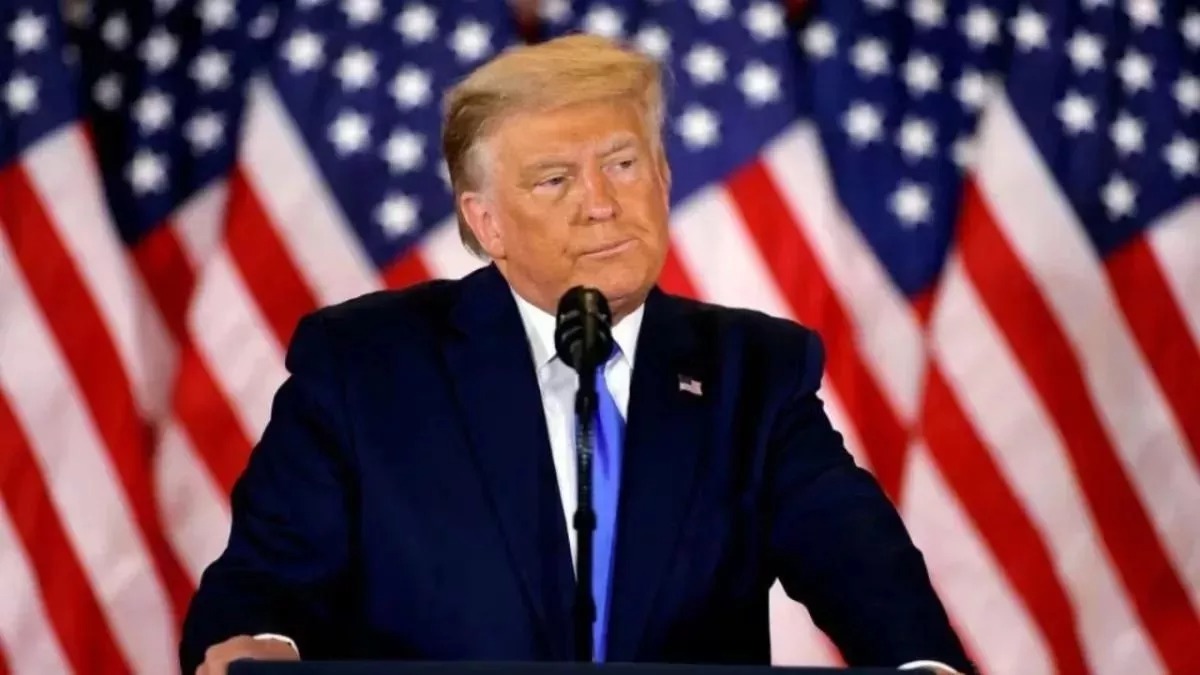
America's new President Donald Trump wants to change the rules of citizenship. He had promised to do so during the election campaign and now after winning the presidential election, he is constantly claiming to do so.
Trump has said that he will end birthright citizenship as soon as he takes office. However, it is not going to be so easy for Trump to end this policy, as he will face many challenges.
President-elect Donald Trump thinks birthright-citizenship is "ridiculous" and wants to abolish it once he takes office on Jan. 20. It's a guarantee that's been enshrined in the Constitution for more than 150 years.
The United States grants citizenship to children born within its borders, regardless of the citizenship of their parents. However, this will soon change.
What does birthright citizenship mean?
'Birthright citizenship' means that anyone born in the US automatically becomes an American citizen. This rule also applies to children whose parents are in the country illegally or are on tourist-student visas. According to Pew Research, the Indian-American population in the US is 4.8 million, of which 1.6 million or 34% were born in the US. Those whose parents do not have a green card or citizenship may lose citizenship when the rule ends.
Are the rules being misused?
This is not the practice in every country, and Trump and his supporters have argued that the system is being abused and there should be stricter criteria to become a US citizen, Russell A Stamets, partner at Circle of Counsels, told Business Standard.
The right to birthright citizenship is based on the 14th Amendment to the Constitution and is well-established under U.S. law, so eliminating it would face significant legal challenges.
The 14th Amendment states that all persons born or naturalized in the United States, and subject to the jurisdiction thereof, are citizens of the United States and of the State where they reside.
Trump and other opponents of the policy say it encourages "birth tourism," a phenomenon in which pregnant women enter the U.S. specifically to give birth so that their child can obtain U.S. citizenship before they return to their home country.
Will citizens be expelled from America?
"Simply crossing the border and having a child should not entitle someone to citizenship," said Eric Ruark, research director at NumbersUSA, which advocates for reducing immigration, according to the Associated Press.
Trump also said, I don't want to break up families, so the only way to keep families from breaking up is to keep them together and you have to deport them all. Which means even legal citizens will be deported to keep families together.
A 2011 fact sheet by the American Immigration Council said eliminating birthright citizenship would affect everyone and make it more difficult for American parents to prove their children's citizenship.
"Our birth certificates are proof of our citizenship," the fact sheet says. If birthright citizenship were abolished, US citizens would no longer be able to use their birth certificates as proof of citizenship.
What will be its impact on Indians?
According to a Pew Research analysis of the 2022 US Census, there are about 4.8 million Indian-Americans living in the US, of whom 34 percent or 1.6 million were born in the country. These individuals are citizens of the United States under the current law. If Trump repeals this law, 1.6 million Indians will be affected.
However, the President cannot amend the Constitution and any executive attempt to restrict this power would violate the 14th Amendment.
"I don't take his statements very seriously. He's been saying things like this for almost a decade. When he was president before, he did nothing to advance this agenda," Alex Nowrasteh, vice president of the pro-immigration Cato Institute, told The Associated Press.
Read More: Did Iran send a secret proposal to the US to prevent war? Reports make a serious claim.
--Advertisement--

 Share
Share



